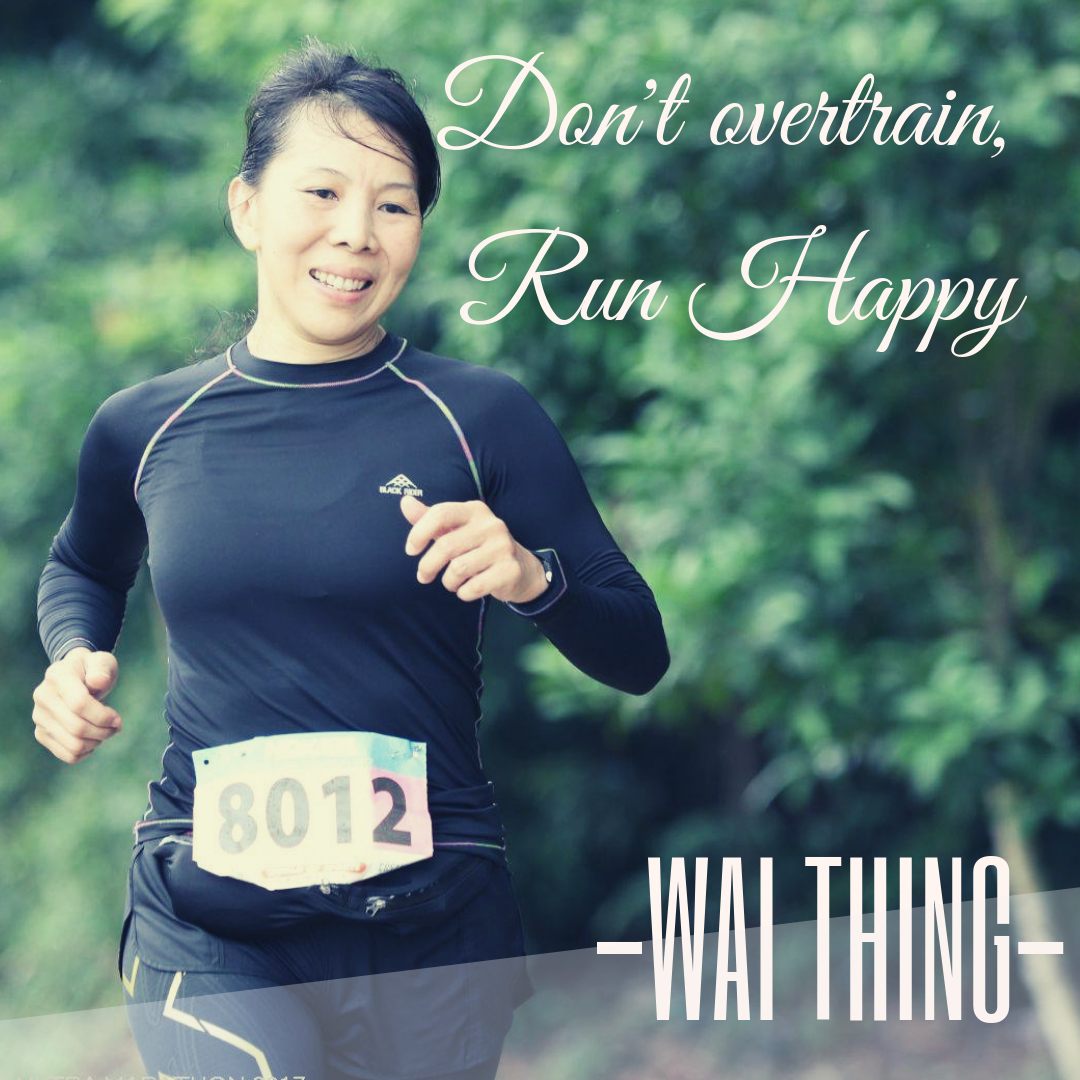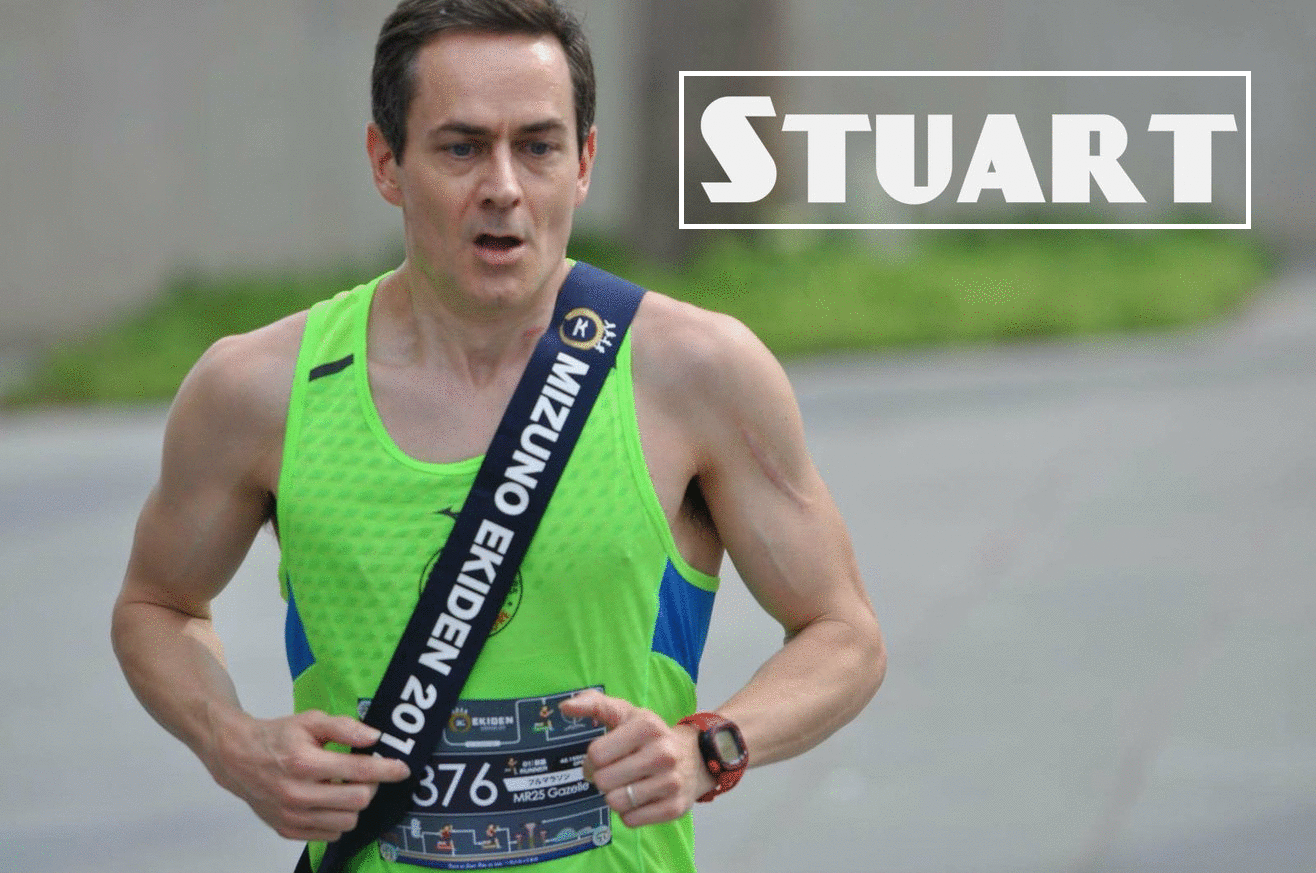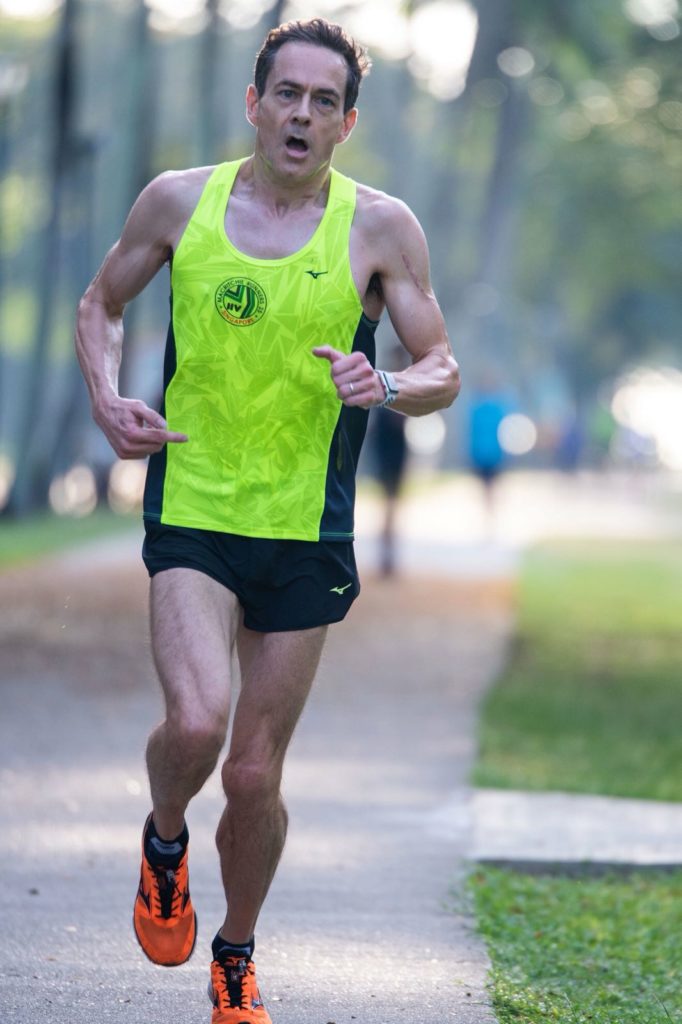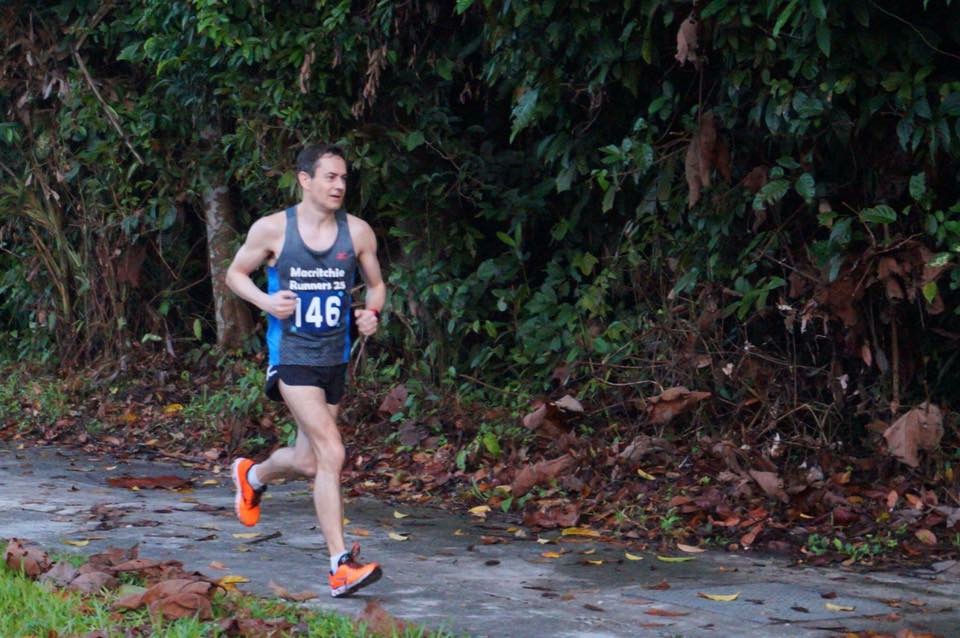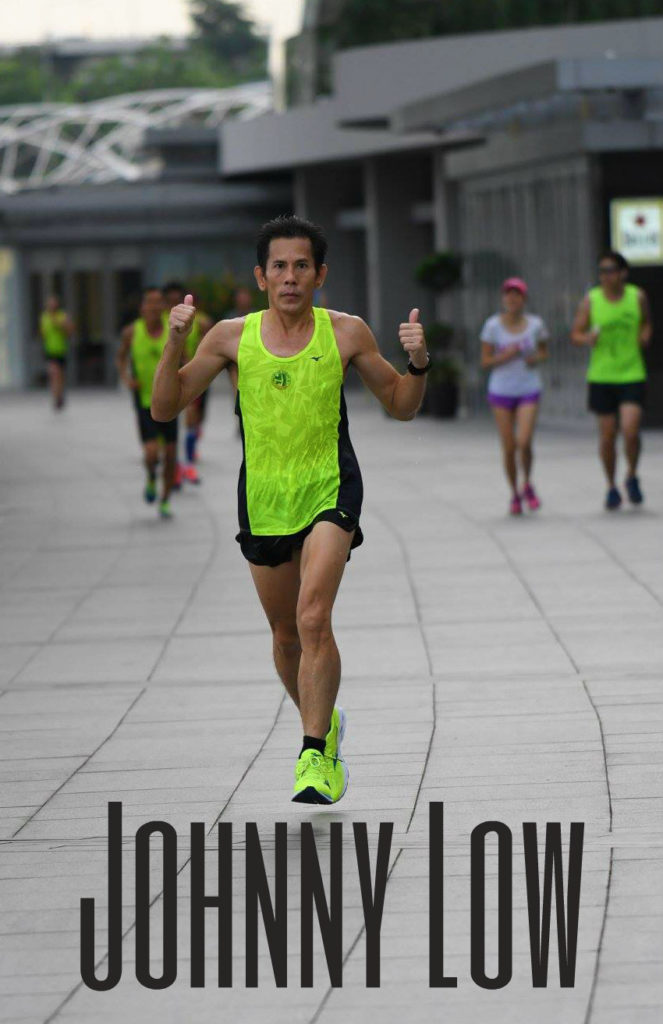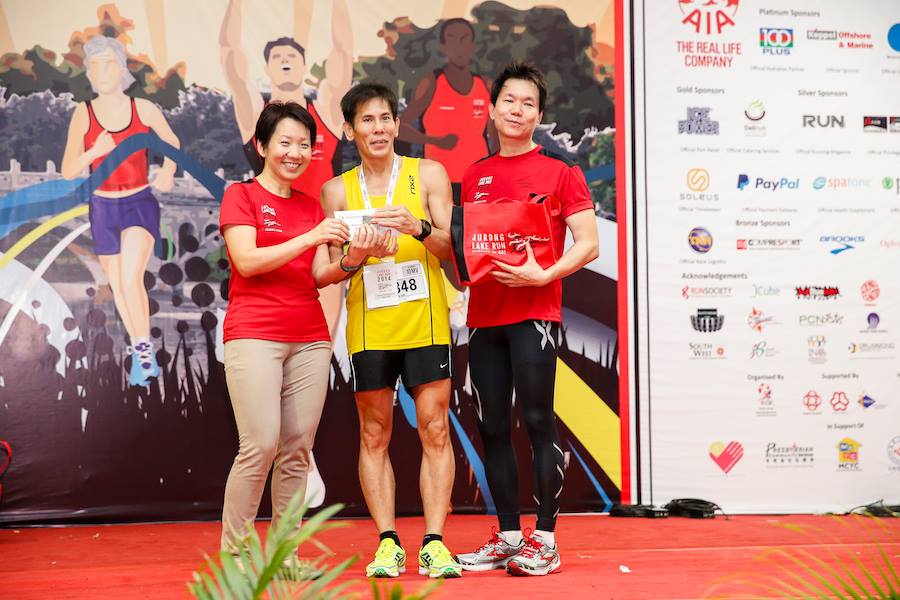Category: OUR RUNNERS
Meet our runners – Wai Thing
Female runners are minorities in the running community. Female ultra runners are rarity and akin to special gems. For this edition of meet our runners, we are paying special attention to one of our most outstanding female “Garang Runner”, Wai Thing. She has been a prominent figure in the ultramarathon running scene, leaving trails behind from Singapore to many harsh trail routes overseas. If there is a trail, there will be a way, and Wai Thing will be there to do this distance. Noteworthy fact, Wai Thing happens to also be one of the winners for MR25 best performing athlete for year 2018. Let’s run down the timeline and understand more about her thoughts towards running…You will be inspired to grind those grueling trails and digging for dirt onto your shoes.
When did you first pick up running and what inspired you to do so?
I was introduced to competitive running back when I was still a student. The fun and excitement of being a school track and field athlete has since inspired me to keep participating in this sport.
How long have you been running? What keeps you motivated?
After graduating from school, I completely stopped running for more than 20 years when I started working and have my own family. The long working hours and the duties of looking after my family have taken priority over my time for running. I only started tentatively going back to my runs around year 2013, when my children got older and became more independent. Naturally, I was sluggish in the beginning. But the subsequent improvements in my fitness motivated me to keep on running.
How did you come to know about MacRitchie runners?
I learnt about the MR25 Running Club when I first participated in the MR25 Ultra Marathon event in December 2014. I liked it so much such that earnestly look forward to taking part in it every year since then. Joining the club was a natural decision, especially so after sister Evelyn Chong explained and convinced me on the benefits of being a member of the most successful longest surviving running club in Singapore.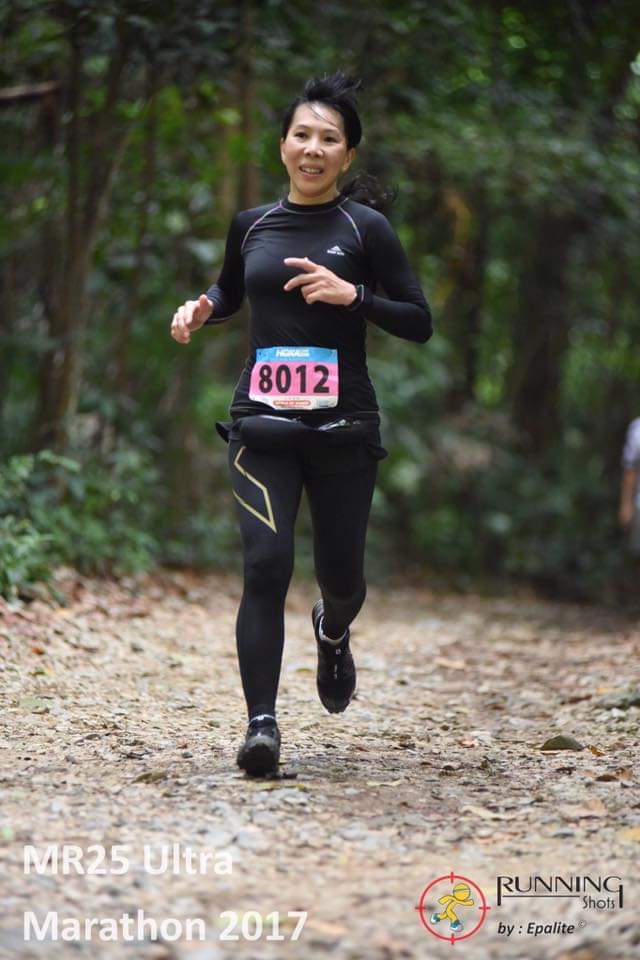
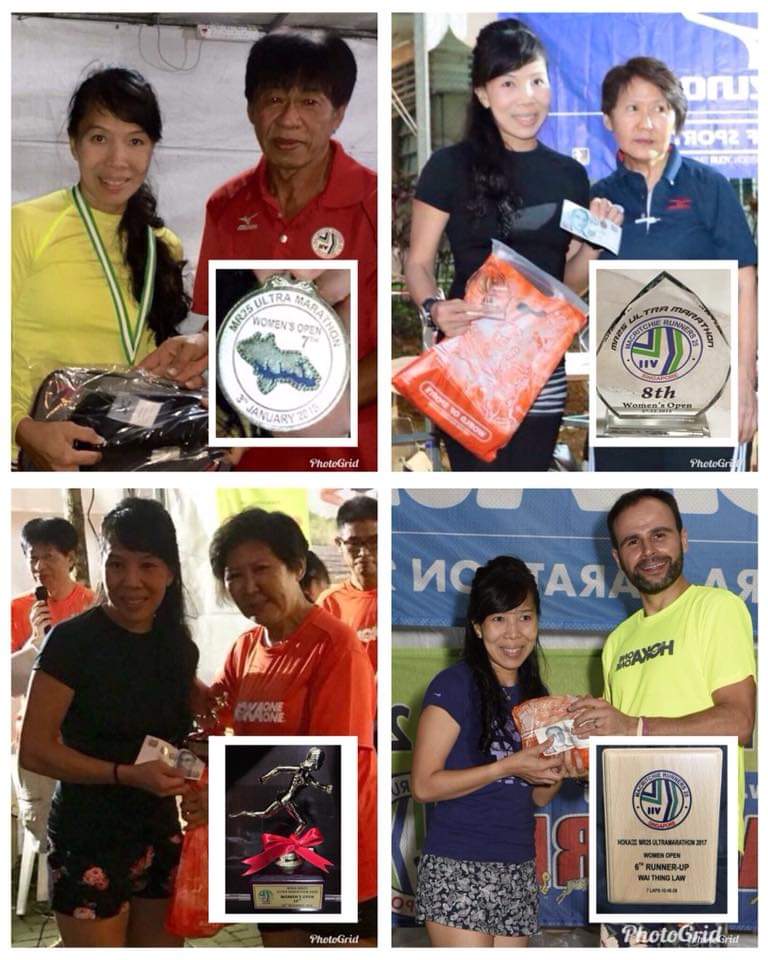
You seem to be huge fan of ultramarathon races. Why ultramarathon races?Ultramarathons are more than simply a test of physical fitness. The long hours of pain and suffering ultimately challenges one’s mental and emotional resolve. I often have to dig deep into myself and even sometimes question my own sanity. However, the thrill of completing an ultramarathon race is indescribable. The emotions after the completion of an ultra, somehow justifies all the pain endured along the way.
Which ultramarathon race was the most memorable or the toughest that you have felt? Talk about what happened and how you managed to overcome it and complete the race.
The Bataan Death March 160km (BDM160) ultramarathon was my most memorable and the toughest race that I have done so far. Prior to it, I have done a 100km distance only once, and it was barely a month before this race. After about 110km, the consequences of my insufficient experience and training showed. I started suffering from acid-reflux as my digestive system had become unstable. I vomited a few times and I couldn’t eat nor drink anything. I also started having hallucinations due to lack of sleep. I had to sleep for more than a few minutes on the roadside before I could gather my senses again. Thankfully, my support was able to bring me warm drinks and plain bread which helped stabilize my stomach again. I immensely struggled to complete this race but I’m so glad that I didn’t give
up.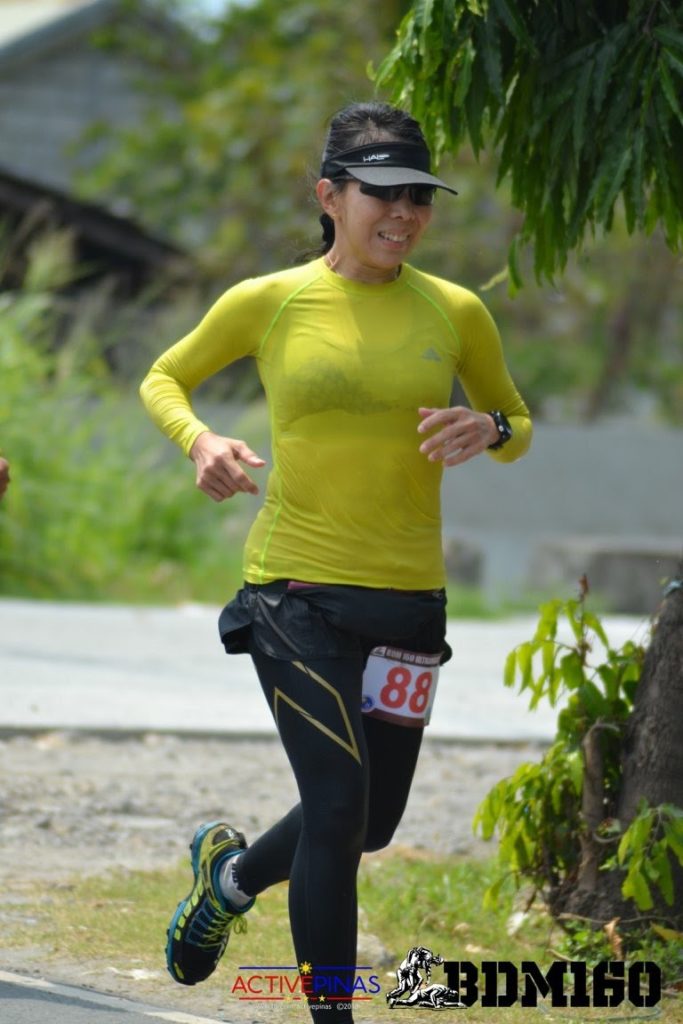
What’s the major difference between ultramarathons in Singapore and overseas race?
The differences are mainly on the terrains, the elevations and the running environment that are not readily available in Singapore. Overseas races may include highways, country roads, plantations, mountains, rocks, boulders, caves, rivers, bushes and forests. The feeling of being in a strange unfamiliar environment adds to the sense of adventure
How is your weekly running schedule like?
I usually try to do at least one easy 10km run on a weekday and a long run of about 10km to 20km during weekends. This is the hardest part for me as I honestly do not have much spare time to train. Thus, I do not have a fixed running schedule.
Tell us a running fun fact of yourself that not many people would know.
Something that many people wouldn’t know, or wouldn’t expect, about me is that I do not have a training plan. I actually use most of my weekend races as my training and clock mileage if I’m preparing for a certain ultra. My fun mantra is: Do Not Over-Train, Run Happy.
What is your upcoming race? And name us the race of your dreams.
My next coming event is the Pong Yeang 100k, in Chiang Mai, Thailand. I’m very excited for this race. But I expect this to be a tough one for me as this is my first 100km mountain race. I really don’t have sufficient experience nor training in running a mountain trail race, especially of this distance, so it will be a new challenge in exploring my limits. My dream race is the UTMB. It is a distant dream for now but I do hope that one day, I’d be qualified to
participate, and ultimately complete the UTMB.
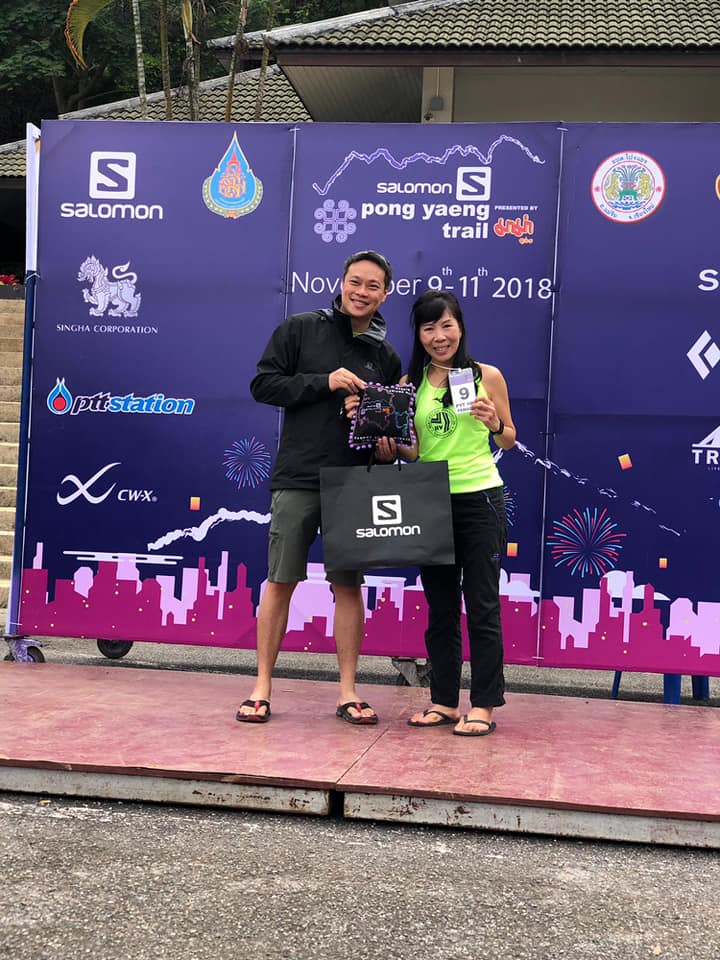
Meet Our Runners – Stuart Mcintosh
At MR25, we welcome like-minded runners from all around the world. Meet our Scottish runner, Stuart, who has been a regular at MacRitchie. In Tokyo, Stuart got to know Arnaud and Leng who brought him to MR25 in Singapore. Since then, his passion for running continued.
When did you first pick up running and what inspire you to do so?
Before embarking on this running journey, I did some windsurfing. Upon watching a triathlon on TV, I was pretty inspired by the triathletes whom were on screen. In Japan, they aired the triathlons event live. It was amazing to witness commoners from all walkers of life pursuing the 3 elements in triathlon and I thought to myself that it was something that perhaps I could try out. Since then, I joined the Namban Rengo Running Club in Tokyo. To me, running was the easiest part of a triathlon. As for cycling and swimming, training was much more complex. Subsequently, when I moved to Singapore, these training sessions followed suit.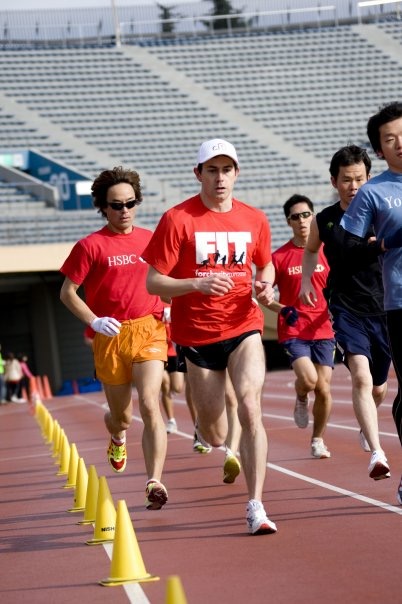
How long have you been running? What keeps you motivated?
I started running at the age of 34 and have since been running for about 15 years. I enjoy the competition during runs. Not only the competition against other runners but more importantly, the competition against oneself. It is rewarding to feel that you are become stronger and faster after every training session. Somehow, I feel that the competitive spirit in 5km runs are extremely exciting. This year, I have been focusing on improving my 5km timing at the weekly East Coast Park parkrun. Even though running in colder countries should be easier, I ran my fastest 5km runs last year. In the recent 6 months, I have tweaked my training format drastically and my timing have improved quite significantly. My personal best timing for 5km is 18:29 and I intend to improve on it further. I have never felt that age was an issue when it comes to shaving those seconds of your personal best, training plan was instrumental towards improvement.
Was there an instance when you have faced great difficulty in running journey? How did you overcome this obstacle?
Although I have competed in several marathons (mostly in Japan), thankfully I have only hit the wall once. In that run, I had to walk the last few kilometres of the Tokyo Marathon. A few days later, I found out that I was injured and could not run. I had to go through a few months of physiotherapy and could not run in races for a year. It was the low season of my running journey. Thankfully, I could still swim and cycle during that period. One lesson from that incident: always have an alternative sport to rely on!
Which was your most memorable run?
My most memorable race in Singapore was last year’s Asian Masters. The 5km race was held in the scorching hot sun and I was completely outclassed by runners from India and Sri Lanka. Nevertheless, it was fun being part of the opening ceremony at Kallang Practice track, representing Singapore. Not to mention that it was a rare occasion to be able to run among runners from all around the world.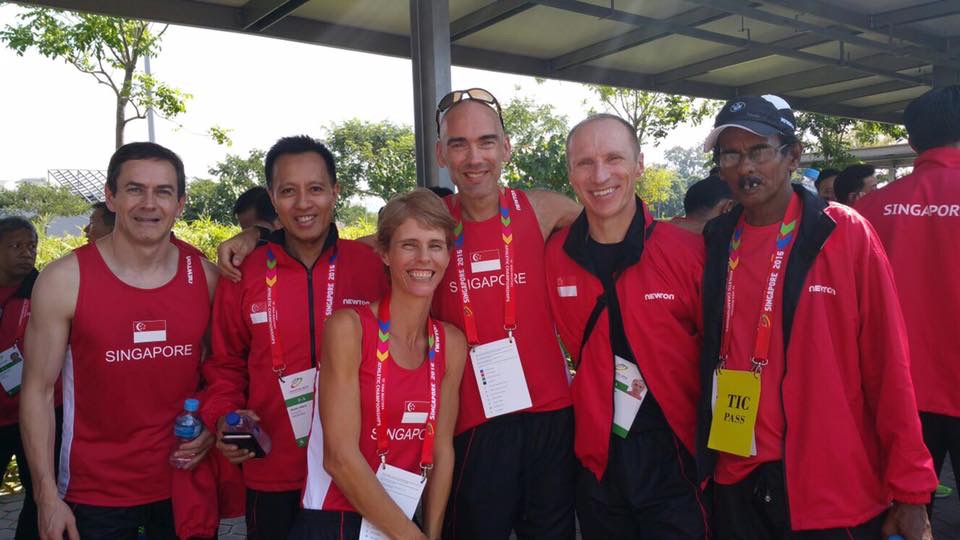
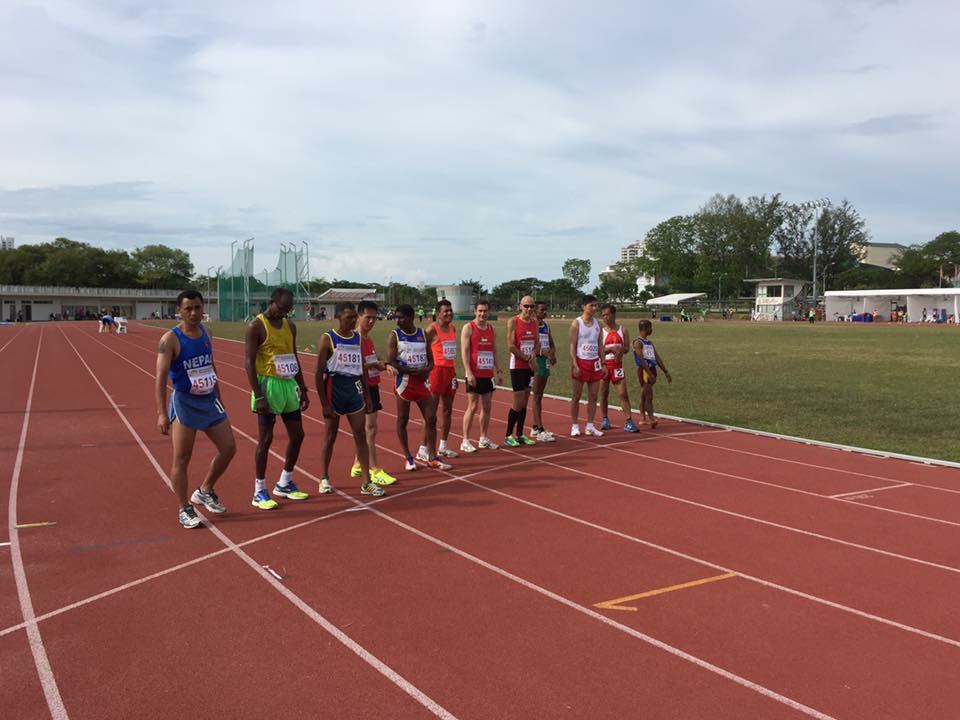
How is your weekly running schedule like?
I alternate hard workouts with easy workouts. I do 2 interval sessions per week, and parkruns on Saturdays. For the easy workouts, I also do some rowing and strength training in addition to running. On Sundays, I go on long trail runs. Other than running, I swim 2 or 3 times a week with Open SwimStars.
Tell us a fun fact about your running journey that we never knew.
I have completed both the Japan and Korean Full Ironman races. Perhaps more ahead?
Meet Our Runners – Johnny Low
Meet Johnny Low. Johnny has been a prominent member of MR25 and always been ever friendly to runners around him. His spontaneity and madness to engage khakis to join in his crazy running workouts is his distinct trademark. Let’s dive deeper and understand his motivations behind running!
How did you first started running?
From time to time, I felt a tingling session and a suspected minor cardiac arrest, deep down I knew I had to go for a medical checkup. After sometime, in year 2011, I went for my long overdue checkup and the doctor concluded my cholesterol level was high and suggested that I do some exercises. The main objective of exercising was to lower my cholesterol level within 6 months else, I will have to be a long term medication to keep my cholesterol level within control. The thought of being on long term medication scared me out and I was very determined to exercise regularly to lower my cholesterol level. Hence, that was when I started out running. I vividly remembered that my first 800m run along the fajar canal was awfully tiring and I even had issues completing it. Back then, I lacked sports knowledge and only knew that running would probably aid in lowering my cholesterol level. I ran so hard that I felt a surge of pressure that went through my arteries. Initial stage was tough but I was determined to continue doing loops along Fajar canal since my health was at stake. The fear of undergoing prolong medication was overwhelming and I knew I had to do something about it. 800m soon turned into 10km loops. I managed to shed off my excess weight and felt more confident about my physical and fitness condition. True enough, the cholesterol level dropped significantly after 6 months and medication control was not required. 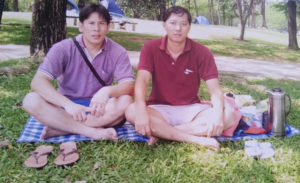
Which was your most memorable race?
It would be Jurong Lake Run in the year 2013. At that point, it was my first running race and I had zero expectations on the race. All I knew was that I had to run as fast as possible towards the finishing point. I put in my 100% effort into the 10km run and completed it with an approximate timing of 43min. Many of my running friends were amazed on my efforts considering that it was my first race event. Unknowingly, I managed to gain the attention of the experienced veteran runners as well. Though I did not secure a podium position, I was immensely pleased with my maiden race performance. For the subsequent Jurong Lake run in 2014, I managed a 40min timing at an age of 46 years old.
What was your proudest running achievement?
My proudest running achievement will be Standard Chartered Marathon 2015 and achieving 7th position in Singapore male veteran category. My timing was a sub 4 timing of approximately 3hr 26min. Never would I expect myself to achieve something like that especially when I started running at such a late stage. 
What’s your biggest obstacle that you faced during your running journey?
It would be my Achilles tendon injury that I experienced when I push myself too hard. This injury flares up from time to time and my race performance has been affectly significantly. Nonetheless, this did not stop me from running and I will continue to do so. Experimenting with different stretching techniques, I continue my training regime to keep my physical fitness level at a consistent level.
What is the one advice that you will give to beginner runners out there?
Start off jogging slowly instead of pushing yourself hard, listen to your body and record your initial running timing. From there on, try to improve your timing at each attempt. Starting off too quickly at the initial stage may demoralise you.


